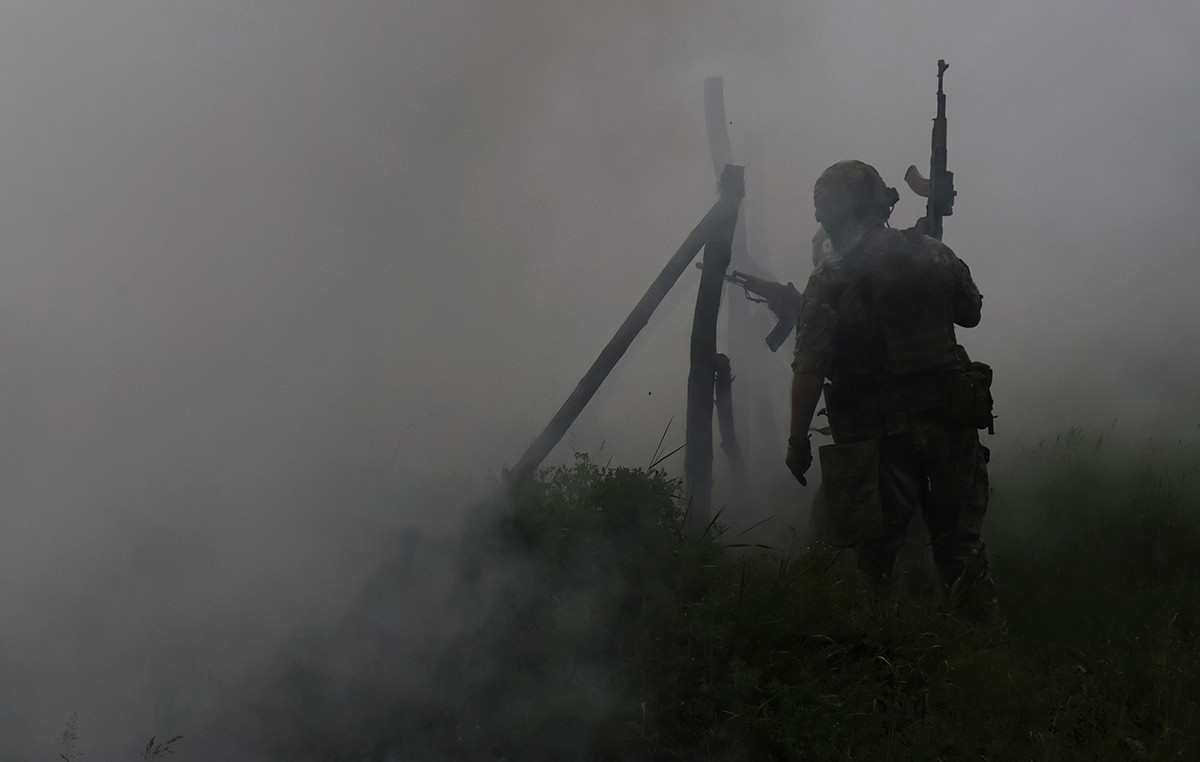The California Highway Patrol (CHP) may be best known for its highway chases and the Hollywood glamor of its motorcycle cops on television shows. But now the famed agency is patrolling the streets of San Francisco’s Tenderloin district as part of a multi-agency effort to clamp down on the rampant drug trade that is decimating the 50-block area.
Recently, one day, the CNN watched task force members arrest an alleged drug dealer accused of selling methamphetamine and fentanyl. With it was seized 33 grams of fentanyl, which Andy Barclay, CHP official, estimates that, in the worst case, could kill thousands of people.
“We are looking at about 16,500 fatal doses of pure fentanyl in that little bag. Yes, 16,500 people could die,” said Barclay.
California Governor Gavin Newsom is leading the crackdown, adding resources to a problem that is not unique to San Francisco and has gained national attention as the city’s liberal politicians come under pressure over an apparent rise in crime.
San Francisco Mayor London Breed’s office says the CHP has made 100 drug-related arrests since May 30. In the past three months, according to her office, state and local agencies have arrested 300 suspected drug dealers and seized 103 kilograms of drugs, including 56 kilograms of fentanyl — a synthetic opioid that is up to 50 times stronger than heroin.
“I’m proud of the CHP and CalGuard efforts to shut down the poisonous Tenderloin pipeline and hold drug dealers accountable,” Newsom said a month after moving some CHP resources from state highways to city streets.
The Tenderloin is considered ground zero for San Francisco’s outdoor drug market, which expanded after Covid-19, forcing Breed to declare a state of emergency in 2021. It’s common to see people using and selling drugs.
Human waste, used needles and bullet casings litter the sidewalks. All the squalor is just steps away from the city’s popular Union Square — the central business district that draws tourists to its luxury hotels and boutiques.
Despite severe repression, residents and business people told the CNN who do not see the results in their daily lives.
Nobody with whom CNN talked wanted to appear on camera for fear of retaliation and harassment, except for Martha Hughes. She has lived in the Tenderloin for 24 years.
“I am not afraid of them. I’m not afraid of anything, ”she said. She has seen the deterioration of the area firsthand. “More drug addicts, more drug dealers,” she said. “It’s just plain bad.”
She supports police repression but doesn’t think it’s working. Her plan is to leave when she finds a more affordable living situation.
“I’m moving in a few years. I had to have surgery this year, so I don’t have the money, but I’m getting out of here as soon as I can afford it. I blame the politicians for all of this and they really don’t seem to care. They talk a lot, but there’s really not enough action,” said Hughes.
New promoter, old problems
One such politician is San Francisco District Attorney Brooke Jenkins. She was elected in 2022 after voters, fed up with crime, ousted former district attorney Chesa Boudin.
“We seem to be failing as city leaders,” she told CNN . “I want you to know that I am working every day to make sure the situation changes. But I’m just a part of this system. I had to be very upfront about the fact that there is another part of the system failing.”
Jenkins says her office has opened nearly 1,000 drug trafficking cases, and she has tried to detain the most serious offenders pending trial.
“Unfortunately, they are back on the street almost immediately after the arrest was registered,” she said, pointing the finger at the Superior Court judges.
A CNN could not independently confirm Jenkins’ claims. The San Francisco Superior Court had no comment.
Last year, Jenkins said his office filed motions to keep 200 of the most egregious drug dealers behind bars pending trial. Of the 200 detention requests submitted, only 17 were granted, according to Jenkins.
The judges allowed the rest to be recognized. In these cases, the accused agrees to appear in court when necessary and to comply with any restrictions or conditions imposed. In some cases, Jenkins said, suspects failed to return for court dates or broke the law while waiting at liberty.
“I will not take the blame if my prosecutors came in and argued that these people should remain in custody. The judges are not doing their part and this needs to come out,” said Jenkins.
See also: SP City Hall investigates seven deaths from drug use K
Source: CNN Brasil
Bruce Belcher is a seasoned author with over 5 years of experience in world news. He writes for online news websites and provides in-depth analysis on the world stock market. Bruce is known for his insightful perspectives and commitment to keeping the public informed.







